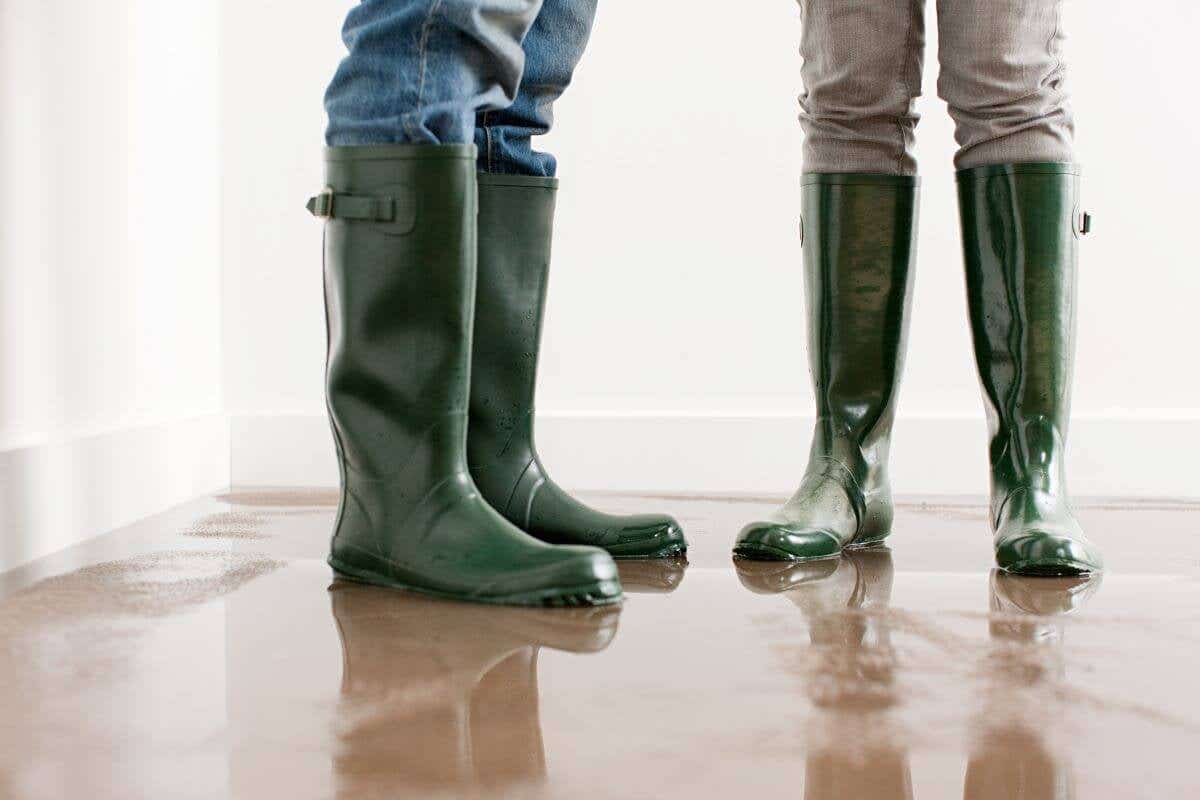One of the most common misconceptions about South Carolina home insurance is that it covers any damage that happens to your home. Flooding is a good example of this. Few, if any, homeowners policies cover water damage if it’s caused by a flood.
For many homeowners, especially those living in flood areas in South Carolina, that means two things:
- You need to take steps to guard against flooding.
- You may need an additional flood insurance policy.
Can you protect your home against all of nature’s unpredictabilities? Probably not. But you can reduce their impacts through risk mitigation and insurance – and that starts with identifying your particular risk.
Let’s take a closer look at South Carolina flood zones so you can protect your home from flooding.
Where are the flood areas in South Carolina?
Flood damage is a real possibility for most of the Palmetto State. The South Carolina Department of Natural Resources has found “flood-prone areas in every county, city, and town” across the state.
That said, people living closer to the coast are more vulnerable to the very dangerous flood that comes during South Carolina hurricane season, like the Beaufort County SC flood zones. Other coastal counties in South Carolina that are susceptible to flooding include:
- Charleston.
- Berkeley.
- Colleton.
- Dorchester.
- Georgetown.
- Horry.
- Jasper.
These are not the only places where floods can occur, but the high risk for potentially catastrophic flooding makes them worth a special mention.
Flood zones
Up until now, we’ve referenced flood areas in a fairly general way, but South Carolina residents also need to know about flood zones. The Federal Emergency Management Agency (FEMA) labels certain areas as flood zones based on the degree of flooding that’s likely to occur.
You can find out if your home is in a flood zone by visiting the FEMA Flood Map Service Center and entering your address. For example, we searched Beaufort SC flood zones and found that much of the county is either Flood Zone AE or VE. The same was true on the Charleston, SC, flood zone map.
Both AE and VE flood zones have a high risk of flooding, but the reasons for the risk are different. Flood Zone AE indicates the area is near floodplains, rivers, lakes, and other bodies of water. Flood Zone VE are usually coastal areas where homeowners also face the risk of storm surge.
Either way, FEMA designates these and other flood zones as Special Flood Hazard Areas (SFHA). Homes in an SFHA have a 26% chance of experiencing a flood during a thirty-year mortgage, so owners typically have to get flood insurance to get federally backed-loans.
While the risk for floods is greater in some places, you should note that flooding can happen almost anywhere. FEMA estimates that 25% of flood claims are from areas with low-to-moderate flood risk. Worse? Some question if FEMA flood maps are accurate, in part because they don’t account for climate change.
How to harden your Home against flooding in South Carolina
The homes, people, and businesses in the flood areas in South Carolina may be impacted every year by excessive rainfall, overflowing rivers, storm surges, and more. According to the most recent information from Risk Factor, there are more than 358,000 properties that are at risk for experiencing floods. That number is only expected to increase each year as sea levels rise and more people move to the state.
Getting the right insurance is essential to recovering from South Carolina flood damage, but you also want to think about how you can minimize it in the first place. Some steps you can take include:
- Elevating your systems. Some flood zones have base flood elevations (BFE), or the height water is expected to rise during flooding. If your area has a BFE, you may want to make sure your electrical systems and furnace are above it.
- Updating your flooring. Switching from carpeting to tile may reduce the amount of damage you see in a flood.
- Floodproofing your basement. A sump pump is one option, but you may also want to seal the walls of your basement with waterproof compounds.
- Sealing windows and doors. Make sure these are tightly sealed with caulk. While you're at it, check for gaps anywhere pipes or wires enter your home.
- Directing water away from your foundation. Probably the easiest way to do this is to position rain spouts so the water runs toward your yard, but you could also make sure your landscaping slopes away from your home.
For more tips, read our article 6 tips to minimize your risk of flood and water damage.
Flood insurance in South Carolina: FAQs
Unfortunately, we do not currently offer flood insurance in South Carolina. But as a home insurance company dedicated to bringing coverage to people in catastrophe-prone areas, we know how important it is for our members to have the information they need to protect their homes. The following answers to some of the most common questions about flood insurance in South Carolina will hopefully help.
Do I need flood insurance in South Carolina?
It depends! While your mortgage company may require you to get flood insurance if you’re in an SFHA, you may still want coverage. In SC, flooding areas are abundant, and most homeowner's policies don’t provide financial protection against flood loss. The likelihood of floods, and the damage they can cause, makes flood insurance a good idea for most people.
How much is flood insurance in South Carolina?
The cost of flood insurance depends on several factors, such as:
- Your flood zone.
- The design and age of your home.
- Whether or not your utilities are elevated.
- The amount of coverage you want.
- The deductible you choose.
Many homeowners get their flood coverage from FEMA’s National Flood Insurance Program, but some opt for private flood insurers. Both can end up saving them money in the long run because they save homeowners from dipping into their personal savings to make repairs.
Why should I get flood insurance in South Carolina?
Life is unpredictable, and insurance provides protection for those unexpected instances that cause loss. No one wants their home to flood, but it’s seldom up to us. Flood insurance can provide significant financial relief if your home is subject to catastrophic flooding, especially a last-minute flash flood, by giving you the ability to quickly return to your usual way of life.
Will homeowners insurance cover flood damage during a hurricane in South Carolina?
Homeowner’s insurance policies generally exclude the type of water damage caused by hurricane storm surge. That’s why flood insurance is so important in areas along South Carolina’s coast.
How do floods occur in South Carolina?
The main culprits of South Carolina inland flooding are the state’s hot, humid environment and low-lying landscape. Riverine overflows also contribute to the number of flood areas in South Carolina, threatening the safety of more inland homes. And, as a coastal state, South Carolina is also at risk for storm surges during hurricane season.
The bottom line
Understanding what your home insurance covers and what it excludes is key to making sure you have the right protection. For most South Carolina homeowners, flood damage falls in the category of “not covered.” That’s only tragic if you don’t take steps to protect your home.
Fortunately, the steps you need to take aren’t difficult: Identify your flood risk, harden your home against damage, and get flood insurance. Will any of those prevent floods? No. But they can make it easier to recover should you find yourself facing the worst-case scenario.


